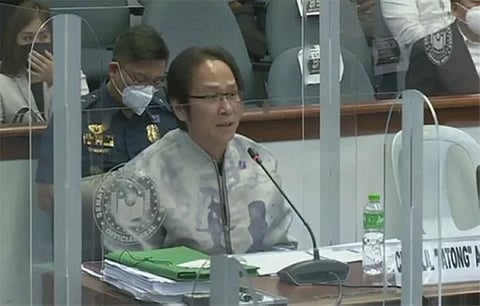Atong Ang and the Missing Sabungeros: A Deep Dive into the E-Sabong Controversy and Calls for Accountability
Introduction
The mysterious disappearance of 34 sabungeros between 2021 and 2022 in several provinces of the Philippines has become a national issue that encapsulates broader concerns about the e-sabong industry, governance, and the rule of law. Central to the controversy is Charlie “Atong” Ang, a businessman whose company reportedly generates enormous revenues yet contributes disproportionately low tax payments. Recent developments, including senate recommendations and new witness testimonies, have intensified calls for accountability and transparency.
This article presents a comprehensive analysis of the financial discrepancies in Atong Ang’s business operations, the ongoing investigation into the missing sabungeros, and the wider implications for Philippine society.
The E-Sabong Industry: Growth, Revenue, and Regulatory Challenges

E-sabong, or online cockfighting, has transformed from a traditional pastime into a multi-billion peso industry, enabling bettors nationwide to participate digitally. The Philippines has witnessed a boom in this sector, with companies like Lucky 8 Star Quest leading the market.
Revenue Generation
In 2022, reports revealed that Atong Ang’s company was earning approximately 3 billion pesos per month in revenue. This figure underscores the scale of e-sabong’s economic influence, attracting millions of bettors and generating massive cash flows daily.
Tax Collection Disparity
Despite the astronomical revenues, government records indicated that the state only collected about 640 million pesos in taxes from e-sabong operations during the same period. This disparity—where collected taxes amount to barely one-fifth of total revenue—raises serious questions about tax compliance, regulatory oversight, and the possible existence of loopholes exploited by operators.
Public Outcry and Regulatory Response
This apparent fiscal imbalance sparked widespread public concern. Citizens, advocacy groups, and some government officials questioned why e-sabong was allowed to flourish despite generating insufficient tax revenue.
Critics argue that the government’s passive stance may stem from political influence wielded by powerful business figures within the industry, potentially hindering stricter regulation and enforcement.
Senate’s Call for Investigation

In response to growing public pressure and media scrutiny, the Philippine Senate Committee recommended that the Philippine National Police-Criminal Investigation and Detection Group (PNP-CIDG) and the National Bureau of Investigation (NBI) intensify investigations into Charlie “Atong” Ang and his company Lucky 8 Star Quest.
The focus of the investigation pertains to the disappearance of 34 sabungeros between 2021 and 2022, with reported cases across Manila, Laguna, and Batangas.
New Allegations: Bodies Buried in Taal Lake?
One of the suspects linked to the case has reportedly revealed that the missing sabungeros were killed and buried at the bottom of Taal Lake, a finding that shocks the nation and adds grim urgency to the investigation.
Furthermore, the suspect alleges that the total number of victims might be closer to 100, far exceeding the initial figure of 34.
If confirmed, these revelations suggest a highly organized criminal operation with significant resources and potential complicity from individuals within law enforcement or government agencies.
Atong Ang’s Business Profile and Public Image
Charlie “Atong” Ang has established himself as a prominent figure in the Philippine business landscape. Beyond e-sabong, his investments span the entertainment, gaming, and hospitality industries.
Despite his business success, the public image of Ang has suffered in light of recent allegations. While he denies any involvement in the disappearances, the persistent association with the scandal has eroded public trust.
Legal and Ethical Challenges
Presumption of Innocence vs. Public Opinion
The Philippine legal system upholds the presumption of innocence until proven guilty. However, intense media coverage and social media discourse have created a challenging environment where public opinion often pressures legal proceedings.
Evidence and Investigation Hurdles
Investigators face obstacles in obtaining conclusive evidence linking Atong Ang or his company to criminal acts. These include:
Difficulty accessing detailed financial records
Potential witness intimidation
Complexities in tracing communication and coordination between involved parties
Social Media and the Role of Influencers

Social media platforms have amplified discussions around the case. Influencers like Xian Gaza have called out Atong Ang publicly, demanding accountability and action. While such activism raises awareness, it also risks contributing to misinformation if not grounded in verified facts.
Broader Implications: The Future of E-Sabong and Philippine Governance
The scandal highlights structural issues:
The need for more robust regulatory frameworks for e-sabong
Transparent tax collection and corporate accountability
Strengthening institutions to investigate and prosecute crimes involving influential figures
Conclusion
The disappearance of sabungeros and the surrounding controversy involving Charlie “Atong” Ang epitomize the challenges faced by the Philippines at the intersection of tradition, modernity, and governance. As investigations continue, it is essential that due process prevails, justice is served, and reforms are undertaken to prevent such tragedies from recurring.
Suggested Further Reading
“The Missing Sabungeros: A Complete Timeline of Events” – Inquirer.net
“Online Cockfighting’s Regulatory Gap in the Philippines” – Rappler Explains
“Atong Ang: Business Interests and Public Profile” – ABS-CBN Investigates
“Public Pressure vs. Evidence: The Gaza Effect in High-Profile Cases” – CNN Philippines Analysis
“Toward Transparency: Senate’s E-Sabong Probe and Policy Reform” – GMA News Special
News
A Heartfelt Promise: Sarah Geronimo and Matteo Guidicelli Deliver a Special Announcement to the People They Quietly Helped (NH)
“A Heartfelt Promise: Sarah Geronimo and Matteo Guidicelli Deliver a Special Announcement to the People They Quietly Helped” December 1,…
A Celebration of Love and Legacy: The Grand, Emotion-Filled Wedding of Alyana Asistio and Raymond Mendoza (NH)
“A Celebration of Love and Legacy: The Grand, Emotion-Filled Wedding of Alyana Asistio and Raymond Mendoza” December 1, 2025 Introduction…
Eman Bacosa Stands Firm: Manny Pacquiao is No Negligent Father (NH)
“Eman Bacosa Stands Firm: Manny Pacquiao is No Negligent Father” December 1, 2025 Introduction In the public eye, Manny Pacquiao…
Shockwaves in Showbiz: Shuvee Etrata ‘Claims’ Eman Pacquiao From Jillian Ward — A Love Triangle That Redefined the Spotlight (NH)
“Shockwaves in Showbiz: Shuvee Etrata ‘Claims’ Eman Pacquiao From Jillian Ward — A Love Triangle That Redefined the Spotlight” December…
Heart on the Ropes: Jinkee Pacquiao Breaks Down as Son Jimuel Steps Into the Ring (NH)
“Heart on the Ropes: Jinkee Pacquiao Breaks Down as Son Jimuel Steps Into the Ring” December 1, 2025 Introduction…
Yu Menglong’s Soul: “Living Hell” — Tianyu Entertainment Contract Termination Scandal Exposed (NH)
🔥 Yu Menglong’s Soul: “Living Hell” — Tianyu Entertainment Contract Termination Scandal Exposed 🔴 Publication Date: December 1, 2025…
End of content
No more pages to load












